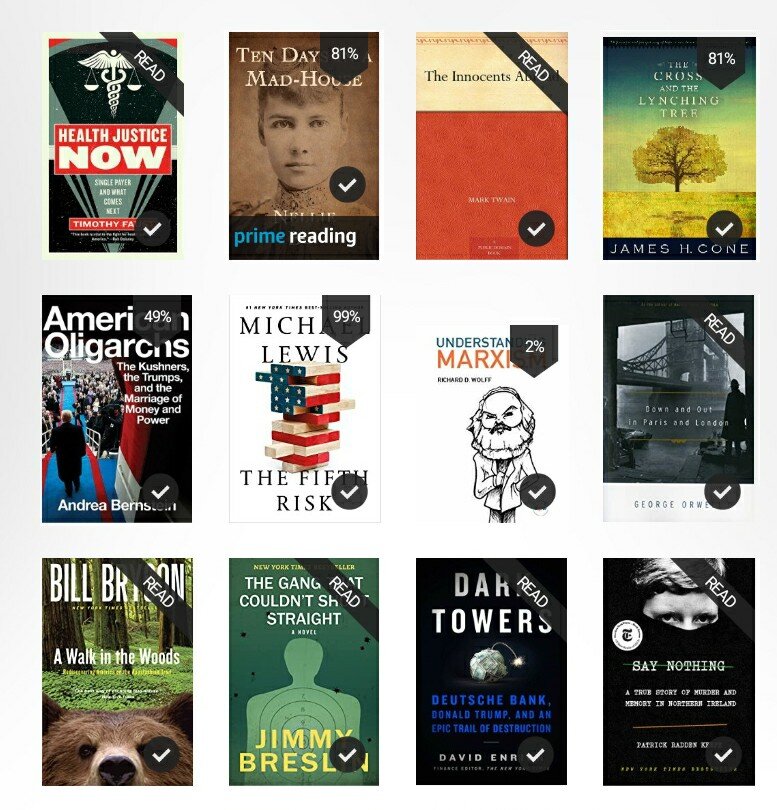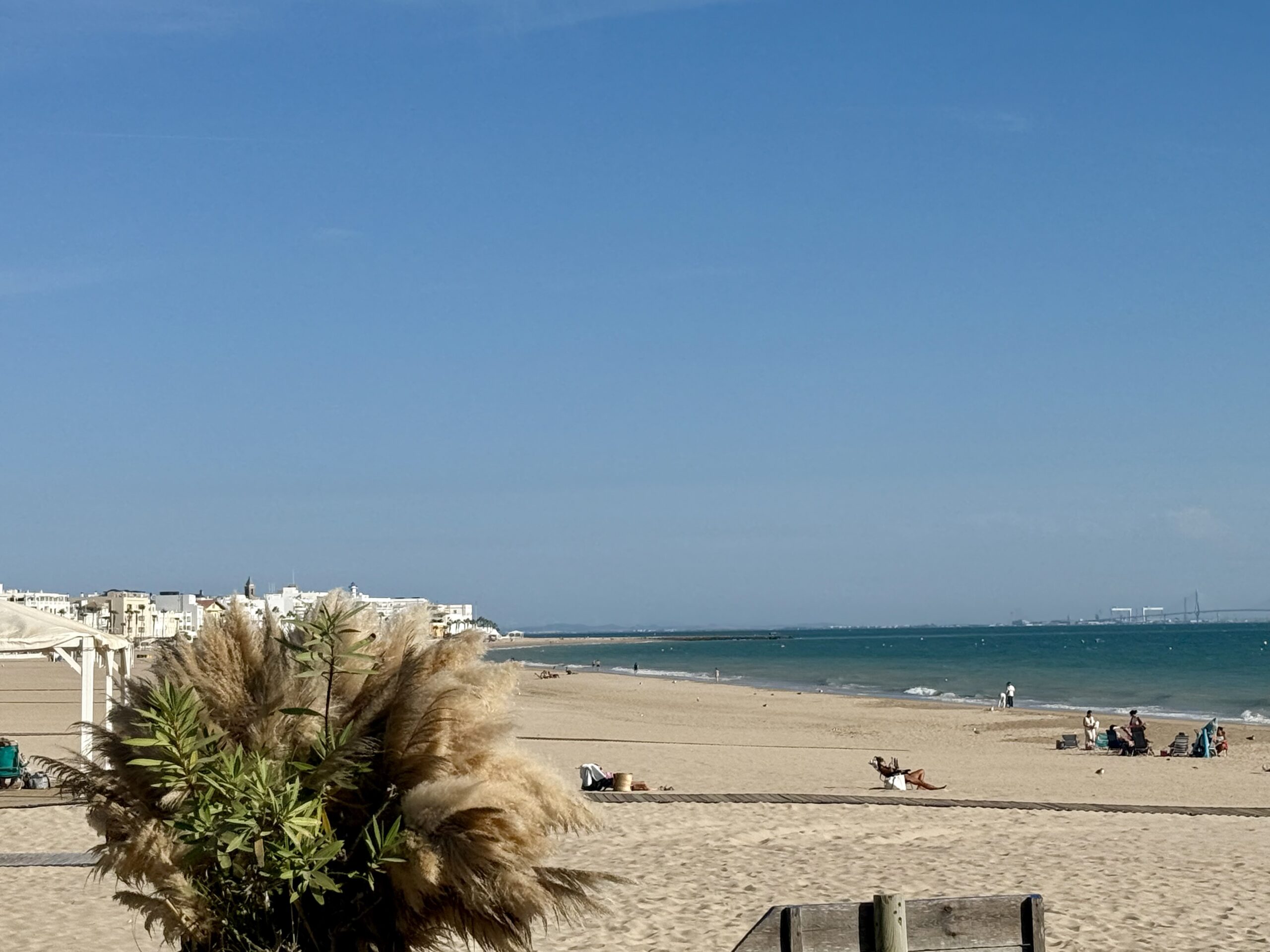
Reid’s reading rainbow
April 9, 2020
One of Carol’s high school friends recently posted how she’s drawn to the bookshelves of news commentators broadcasting from their private homes and apartments. I confess to the same nerdy curiosity. I also confess that I almost exclusively read ebooks, and my “library” of bound books has shrunk dramatically over the years as a result of multiple moves.
I do admit to missing the feel and smell of a bound book in my hands. Watching my progress through the book via the placement of the bookmarker as the book lay near me is also something I remember fondly and occasionally nostalgically. I don’t miss forgetting where I lay the book I’d been reading, the search for which had grown more extended as the years have gone by.
“I can verify that after looking up the same word about half a dozen times, I finally succeed in remembering it. Then comes the real fun of using it in everyday conversation and branding myself as annoyingly pretentious.”
My conversion to ebooks was an epiphanic one (used the proper form this time, Mary!) in reading the travel writer Paul Theroux. A bound book of his had me drafting lengthy lists of vocabulary to look up later. Of course, I either never did or would misplace the list. I then read an ebook of his, and found the online dictionary I’d downloaded was so helpful and convenient, I was immediately hooked. (Of course, ten minutes after I look up the word in question, I’ve forgotten the definition. I can verify that after looking up the same word about half a dozen times, I finally succeed in remembering it. Then comes the real fun of using it in everyday conversation and branding myself as annoyingly pretentious.
The biggest advantage of the ebook, of course, is in traveling. I take my entire library with me, instead of trying to guess what bound book will interest me during airport and train delays and usually guessing wrong. To say nothing of the extra weight and bulk in schlepping a tome or two around a tour of Europe.
The search capability available in ebooks is another valuable tool I’ve come to embrace. I read mostly nonfiction, especially American political history and current events. Getting to the middle of a political history only to forget details of how we managed to slide into this particular mess can be answered with a simple word search that brings all earlier references conveniently to one continuous page.
Dark Towers, American Oligarchs and A Very Stable Genius have been both eye opening and heartburn producing examinations of a country turning over its government to essentially a crime syndicate that uses tax evasion, financial fraud and shameless bullshit the way the traditional mob used piano wire, ice picks and car bombs to get its way. There were times in reading these particular ebooks that I was glad I didn’t have a bound version of the book in my hands to hurl across the living room.
Bill Bryson is a perfect antidote to what ails my self-righteous indignation, and reading books such as A Walk in the Woods and In a Sunburned Country aloud to Carol over morning coffee have provided hours of pleasure and laughs.
I usually have three or four books going at once for the sake of variety. Currently, I’m reading Nelly Bly’s Ten Days in a Madhouse, Andrea Bernstein’s American Oligarchs, James H. Cone’s The Cross and the Lynching Tree and starting Richard D Wolff’s Understanding Marxism.
I’m also preparing for a CNN interview on how I required surgery to remove myself from the couch during the coronavirus crisis. I plan to have a kind of holograph of my ebook library floating around me during the interview.



Be the first to comment